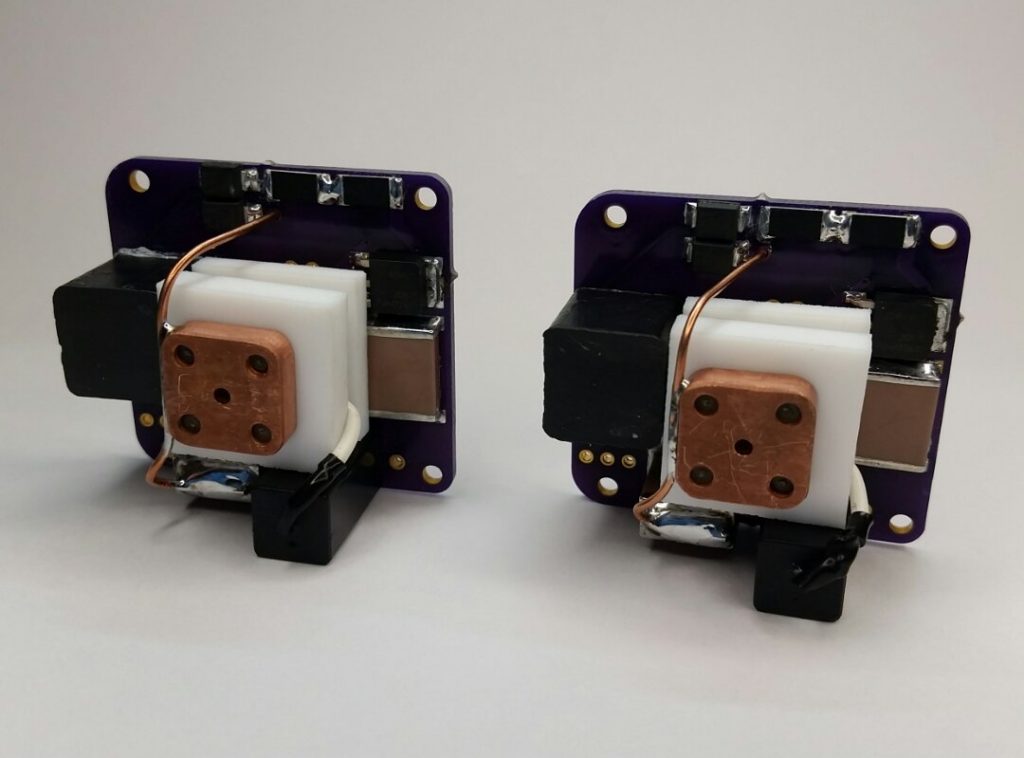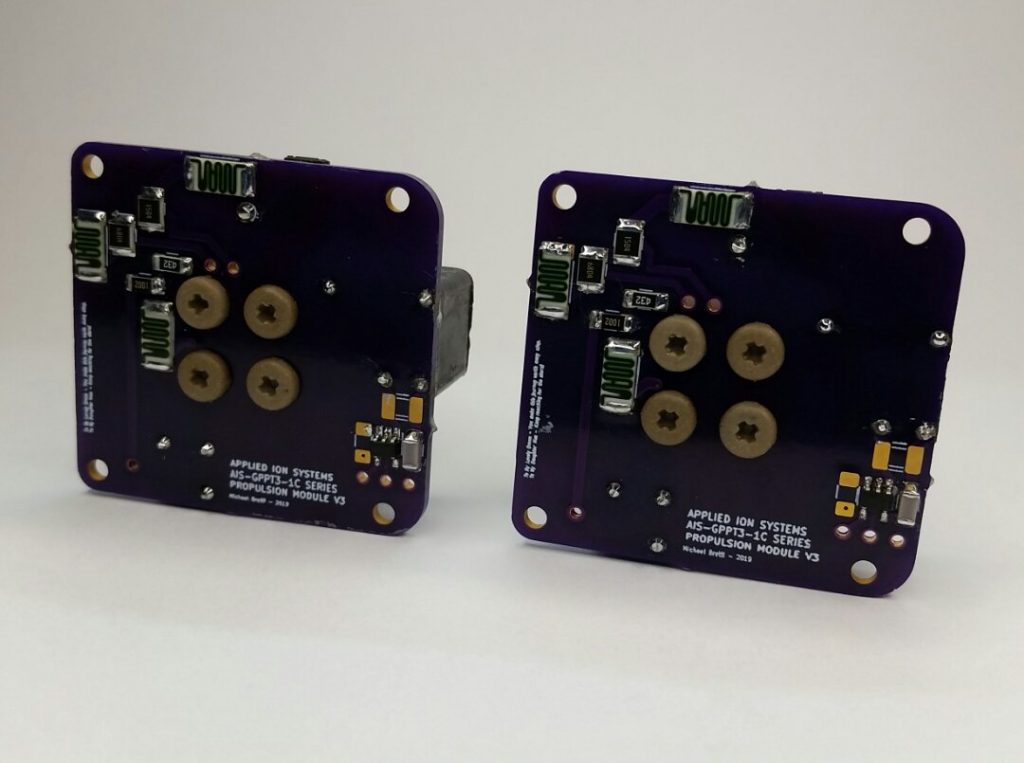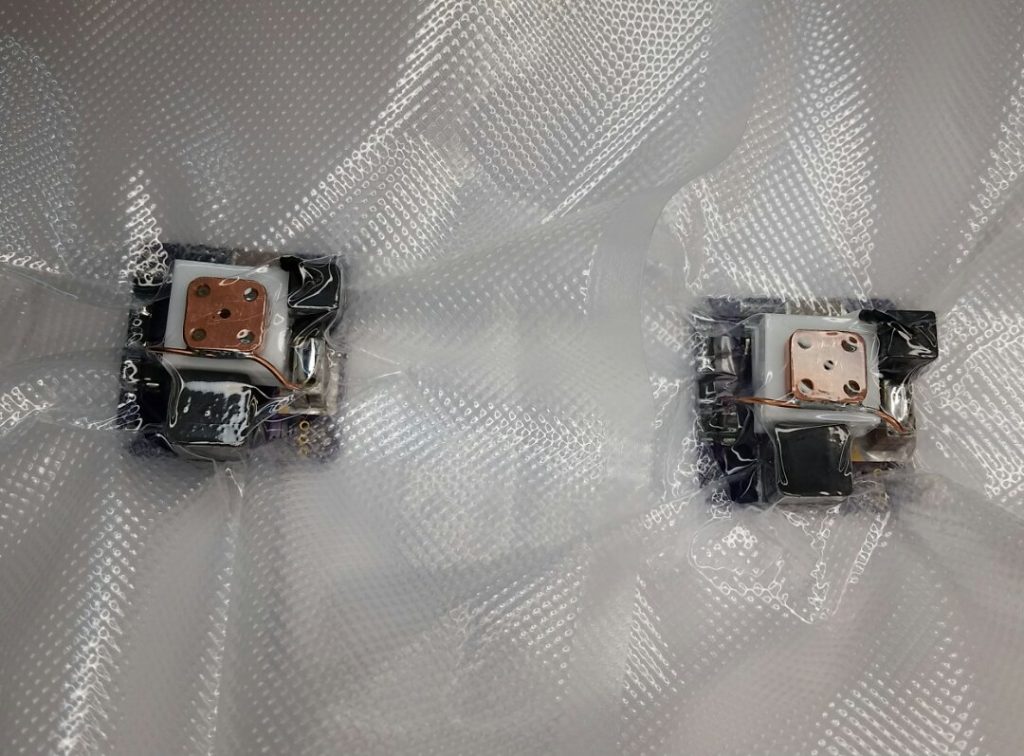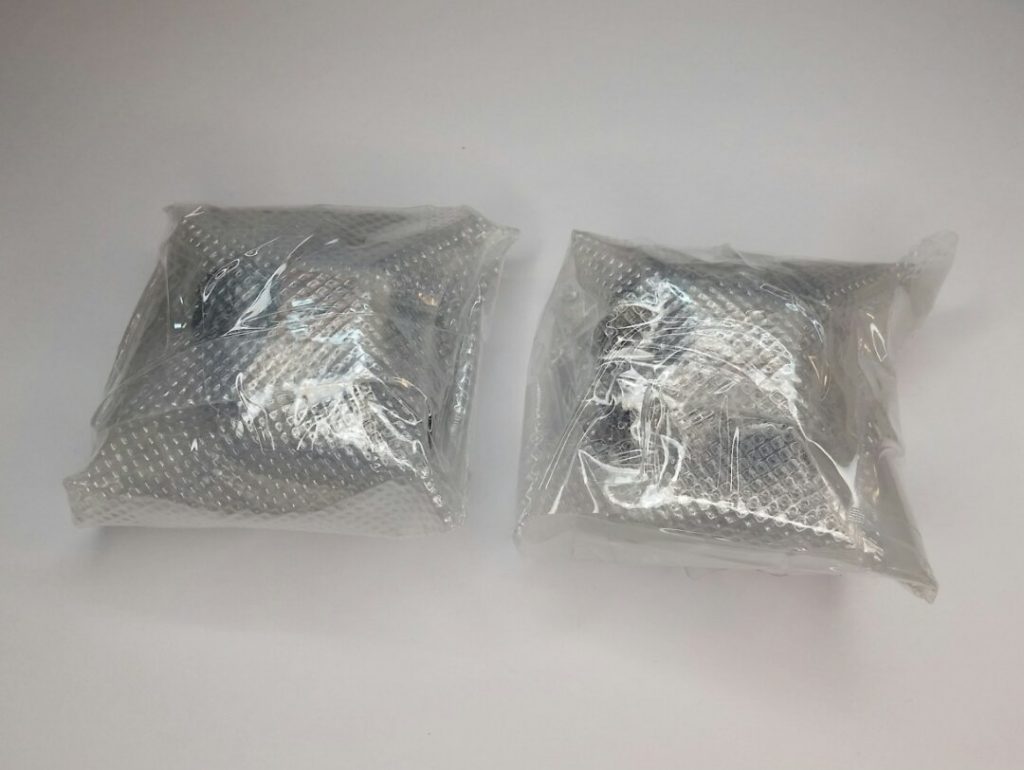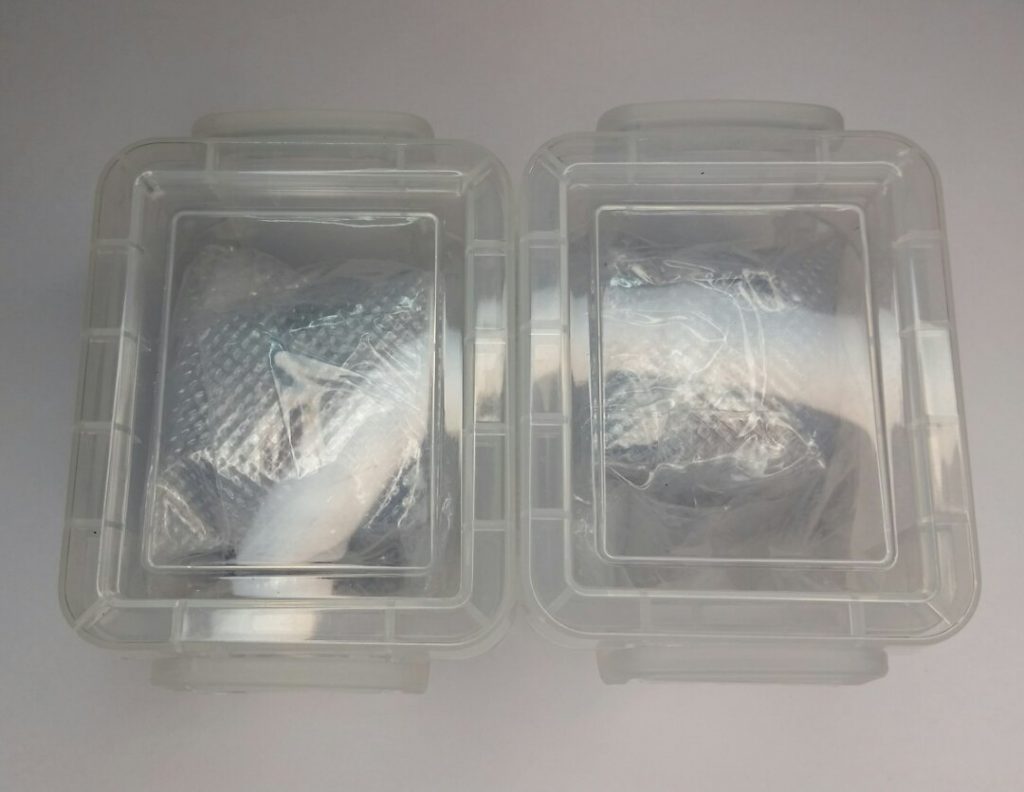Finally, after a quite rapid and fairly successful prototyping, development, and testing phase, I am proud to share the first two actual prototype flight modules of the AIS-gPPT3-1C Integrated Propulsion Module for PocketQubes to be flown in orbit on the Fossa Systems joint collaboration! While the propulsion modules are still not perfect, and have quite limited lifetimes, they nevertheless represent a crucial and significant step forward for the advancement of open source propulsion efforts, and open space in general.
The thrusters are based off the current V3 board design for the propulsion system, and are identical. They will be flown on two separate satellites, primarily as a technology demonstrator fo propulsion for PocketQubes. Although firing during the full mission duration schedule would be ideal to gather data and better verification, all we need is just one successful confirmed ignition, and these little thrusters will have made history, and started a new chapter in the propulsion field.
Each thruster has been vacuum packed after cleaning and placed snugly in a protective plastic box for shipping. It really feels legit now, can’t believe I am actually delivering 2 complete thrusters for a shot in space having literally only fired my first ever working prototype in May!
This has been an extraordinary journey so far, but it is only the very beginning. These little thrusters still have a very long way to go before they are sent to orbit. They have to pass environmental testing, as well as integration, and be fully qualified with the satellite before they get the green light. There is a lot of risk, and a lot that could go wrong. But the rewards and implications if they work far outweigh any of the risks. This is an incredibly exciting time for the PocketQube community, and with each launch opportunity and mission, new advances can be made to push their capabilities even further! We are almost within reach of showing the true power of open source collaboration and development, and actually breaking barriers in the field of electric propulsion!

